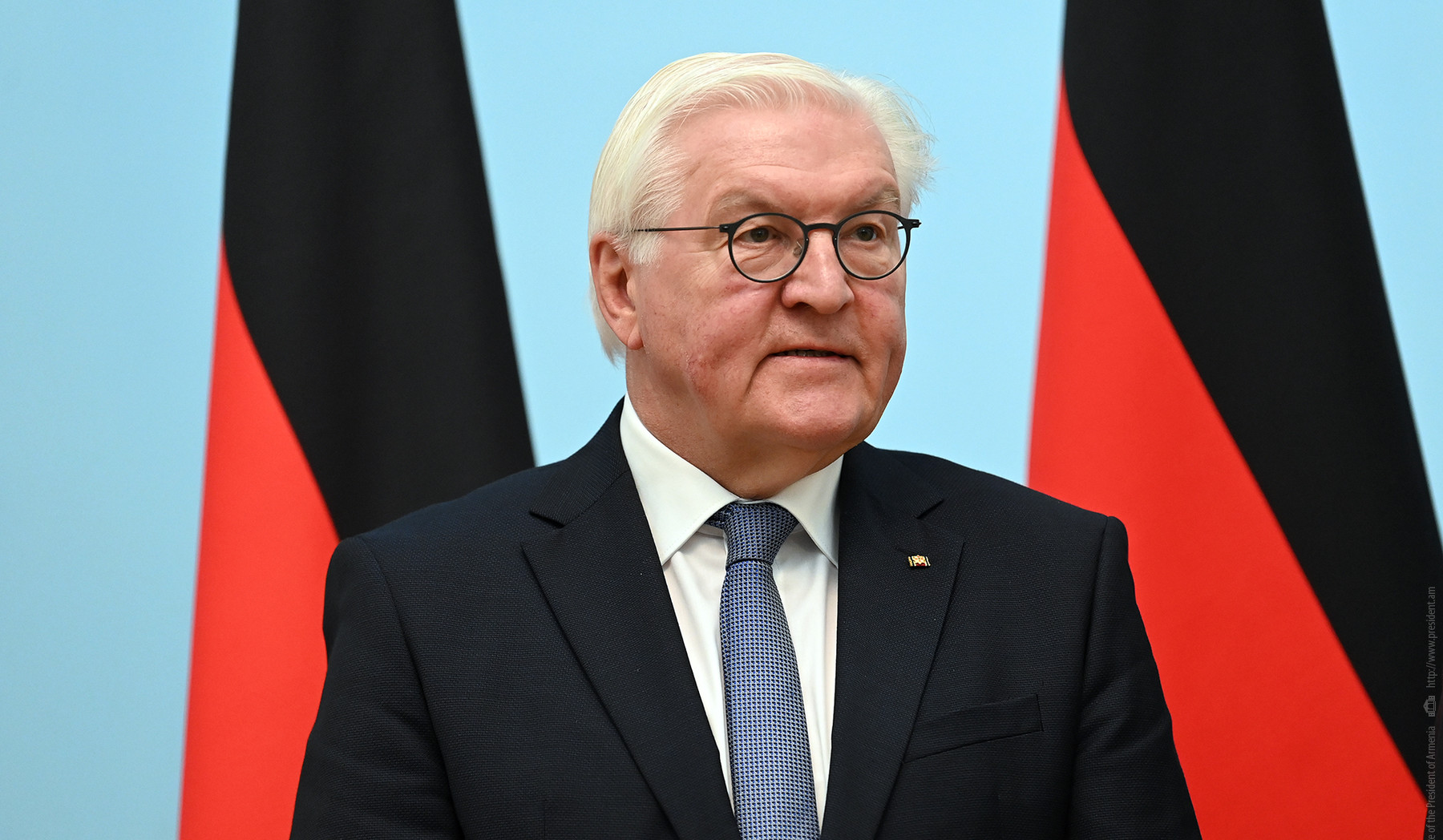Economic Focus: In Armenia, the emphasis was placed on strengthening ties with the EU and supporting democratic reforms, whereas in Azerbaijan, the focus was on energy and bilateral investment projects.
Peace Settlement: In both countries, the normalization of relations was discussed, but in Baku, this issue received more attention in the context of signing a peace agreement.
Cultural and Social Aspect: In Armenia, Steinmeier focused on educational initiatives, while in Azerbaijan, the emphasis was on interfaith dialogue and tolerance.
Steinmeier in the South Caucasus: Germany Strengthens Diplomatic Efforts

Today, German President Frank-Walter Steinmeier concluded his historic visit to the South Caucasus, visiting Armenia and Azerbaijan sequentially. This tour marked an important diplomatic step by Berlin aimed at strengthening ties with both states and supporting peace initiatives in the region.
In Armenia, Steinmeier met with President Vahagn Khachaturyan and Prime Minister Nikol Pashinyan. The negotiations focused on deepening trade and economic ties, where Germany plays a key role as Armenia’s main partner among EU countries.
Special attention was given to supporting democratic reforms aimed at strengthening the rule of law and civil society institutions. Regional initiatives were also discussed, including the "Crossroads of Peace" project, which aims to unblock transportation links in the South Caucasus.
As part of the visit, the German president visited educational and cultural institutions, demonstrating Berlin’s commitment to the development of social and humanitarian projects in Armenia.
In Azerbaijan, Steinmeier held talks with President Ilham Aliyev, where the key topics were economic cooperation and the promotion of a peace agreement between Baku and Yerevan.
Germany is showing increasing interest in Azerbaijan’s energy sector, viewing it as an important partner in diversifying Europe’s energy supply. Additionally, the parties discussed prospects for infrastructure projects and trade development.
A special emphasis was placed on the peace process between Azerbaijan and Armenia. In the context of post-conflict settlement, Berlin supports diplomatic efforts to conclude a comprehensive peace agreement.
Thus, the following comparative analysis can be drawn from Steinmeier’s visits to Armenia and Azerbaijan:
Germany’s diplomatic activity in the region indicates Berlin’s desire to strengthen its influence in the South Caucasus, particularly in peace settlement efforts. However, the success of these initiatives largely depends on the willingness of both sides to compromise.
Unresolved issues remain, such as territorial disputes and internal political reforms, but Steinmeier’s visits have demonstrated that Germany intends to play a key role in stabilizing the region. In the future, we can expect an expansion of economic cooperation and greater EU involvement in peace processes.
Expert Group CCBS
 Latest news
Latest news Latest news
Latest newsSerbia’s European Integration: Prospects and Obstacles
21.Oct.2025
Ukrainian Drones Set Fire to Russia’s Largest Gas Plant, Gas Intake from Kazakhstan Suspended
20.Oct.2025
Trump and Zelensky in Washington: The Return of “Hardline Support” Policy
19.Oct.2025
Activist Margretta Mirzoyan on the Political Mood in Armenia
18.Oct.2025
Trump and Putin Prepare to Meet Ahead of Zelensky’s White House Visit: A New Phase of Diplomacy or Pressure on Kyiv?
17.Oct.2025
A Shadow over the Russian-Azerbaijani Thaw: What Lies Behind the Arrest of Former Presidential Chief of Staff Ramiz Mehdiyev?
16.Oct.2025
Russia and Syria: A New Chapter in Relations After the Coup
16.Oct.2025
NATO and EU Join Forces to Build a “Drone Wall”
15.Oct.2025
Trump: New bonds of friendship to join Armenia to Azerbaijan
14.Oct.2025
UK to lift its arms embargo on Armenia, Azerbaijan
14.Oct.2025

 25 Oct 2025
25 Oct 2025








